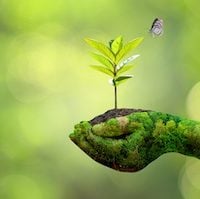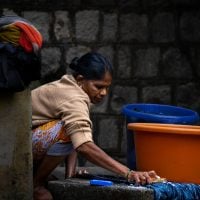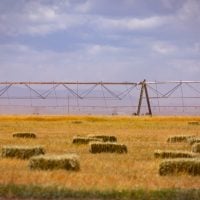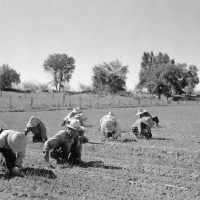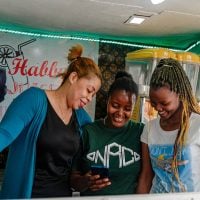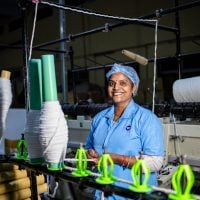Deadline: 20-Aug-2023
The United Nations Development Programme is seeking applications to respond the development challenges by transferring Czech expertise and innovative solutions for SDGs to partner countries.
Objectives
- The Challenge Fund: Czech solutions for SDGs (CFCS) is a component of the Czech-UNDP Partnership for Sustainable Development Goals (hereafter CUP), a project financed by the Ministry of Foreign Affairs of the Czech Republic and implemented by UNDP Istanbul Regional Hub to address development challenges in six priority countries: Bosnia and Herzegovina, Federal Democratic Republic of Ethiopia, Georgia, Kingdom of Cambodia, Republic of Moldova, Republic of Zambia.
- The objective of the Challenge Fund: Czech Solutions for SDGs is to facilitate transfer of Czech know-how and innovative solutions that would address development challenges identified by UNDP Country Offices (CO) in the project countries and contribute to the achievement of SDGs.
- The CFCS is looking for innovative solutions that generate improvement and value, especially by introducing, new methods, ideas, or products. The CFCS views innovation in its broadest sense and recognizes innovations can come in many forms and variations. The proposed solutions need to be sustainable and have a potential for scale up. It should empower those who are left behind or are at risk of being left behind. Gender sensitivity should also be integral part of the project.
Funding Information
- The Czech-UNDP Partnership for SDGs will provide between US$20,000 and US$40,000 per project through the CFCS.
- Duration: Expected length of contract: up to 12 months
Development Challenges:
- Bosnia and Herzegovina
- Circular Economy: circular business models in textile, furniture, metal, construction sectors; innovation in green consumer packaging; green chemistry; behaviour change approaches for sustainable lifestyles and consumer behaviours.
- Inclusive Economic Transformation Targeting Youth: with focus on e.g., Innovation ecosystem, Digital Skills and Capacity Building, Critical Thinking, Entrepreneurship and STEAM.
- Federal Democratic Republic of Ethiopia
- Climate Resilience and Environment Sustainability: with focus on e.g., Access to renewable, affordable, and clean energy, Solar energy solutions, Sustainable urbanization and smart city technologies including strategic benchmarking tools for economic growth via Big Data usage, Dynamic traffic control and intersection coordination, Systems for inspection and maintenance of city infrastructure, Data crowd sourcing platforms.
- Inclusive Economic Transformation: with focus on e.g., Strengthening the innovation ecosystem targeting the youth, Technologies and tools to facilitate technology transfer and cooperation between universities and industry, Inclusive and innovative finance, Digital payments and innovative finance tools/approaches, Support to SMEs, Sustainable agriculture.
- Georgia
- Sustainable growth: with focus on e.g., Green dimensions of urban development; Public infrastructure and public urban areas; Development to attract/support sustainable ecotourism and sustainable development of space and urban planning; Support for community areas and inclusive spaces, spatial and urban planning development.
- Good Governance: with focus on e.g., Building/support of inclusive society, Democratic participation, Support of the needs of vulnerable and disadvantaged people.
- Rural Development, Jobs and Livelihoods with focus on e.g., cultural heritage, preserving cultural heritage as a part of ecotourism.
- Disaster Risk Reduction and Environmental Protection with focus on e.g., Development of Protected Landscapes and Areas, Waste Management; Exit Single-Use plastics, Air pollution and renewables, Green procurement, Circular Economy and Food Waste
- Kingdom of Cambodia
- Sustainable Growth: with focus on e.g., Youth employment, Job creation, Support of youth and women-led enterprises and livelihoods, Covid-19 socio-economic recovery.
- Green Economy and Circular Economy: with focus on e.g., Climate resilience, Sustainable agriculture.
- Energy Efficiency and Renewable Energy: with focus on e.g., Innovative green solutions and energy affordability, Energy efficiency.
- Republic of Moldova
- Sustainable Growth, with focus on e.g., Inclusive and Equitable economic growth, Support of markets, employment and encouragement of economic growth, Mitigation of negative impacts of economic decline in the sectors of agriculture, market, employment.
- Sustainable Forest Management, with focus on e.g., management of forests and protected areas, diversification of income in forestry sector with focus on added value products and Sustainable Green Cities, with focus on e.g., Green Technologies & Affordable Energy Sources, ensuring energy affordability, and mitigating the impacts of energy poverty for local communities; and Innovation for Road Safety, including safety of pedestrians, smart solutions, AI-enhanced and other tools for monitoring of traffic violations.
- Solutions on Digital Transformation, with focus on e.g., Digital Innovations & New Solutions for ICT Sector for local communities in and refugees from Ukraine; Digital Innovations in Farming and Agriculture including digital farmers registry (ID numbers, monitoring of results and output); and advisory group on compliance to EU rules and standards.
- Climate Change with focus on e.g., Energy efficiency, Green Energy and Transformation (Based on EU Green Deal), including Development of national programs, Private sector engagement, Funding mechanism and development of financial schemes green public development; Environmental sustainability and resilience; Ensuring energy affordability and mitigating the impacts of energy poverty for local communities and refugees from Ukraine.
- “Just Transition” – Environment; Anti-Corruption and Eco-Innovations in the Governance Line, with focus on e.g., Digital services and technologies to improve and support the public service delivery, increasing people’s engagement, enhancing transparency, accountability, inclusion.
- Republic of Zambia
- Good Governance with focus on e.g., support of youth and women-led enterprises and livelihoods, local enterprise development.
- Nature Resources Management and Renewable Energy with focus on e.g., innovative and new sources of energy, including production, packaging and distribution of the biogas and organic fertilizers.
- Climate Change with focus on e.g., Climate Change resilience, adaptation and mitigation, Sustainable and climate resilient agriculture, forestry, agroforestry and production of timber, innovations for sustainable river fishing and fish farming, innovation for sustainable beekeeping and access to the markets, support of cooperatives.
Outcomes
- The CFCS is looking for innovative solutions that generate improvement and value by introducing new methods, ideas, or products.
- The Challenge Fund: Czech solutions for SDGs views innovation in its broadest sense:
- a new approach, product, idea or service that has not been tested anywhere
- is new to the beneficiary country
- has not been applied to the sector in question in the beneficiary country; or
- service or business model being introduced to a target group where it has not been tried before. Innovations come in different forms.
- The supported outcome is a new approach, product, idea or service. The supported outcome is also a feasibility study providing an innovative and replicable solution to the identified development challenge.
- Proof of Concept: To test the proposed solutions and/or to be able to tailor-make them. When the intellectual concept behind an innovation is field-tested to gain an early, ‘real-world’ assessment of its potential.
- Transition to Scale: When innovations that have demonstrated small-scale success develop their model and attract partners to help fill gaps in their capacity to scale.
- If the outcome is a feasibility study, the study will include evidence that the proposed solution is feasible, and implementation plan specifying actions and partnerships necessary for the implementation of the solution. It will list all associated activities, stakeholder engagement, implementation costs and possibilities for scale-up.
- In both cases, the Awardee is expected to consult and implement their solution in cooperation with local partners, stakeholders and/or final beneficiaries in order to make sure that the solution is adapted to and viable in local conditions. This engagement with local partners needs to be documented (Letter of Intent, Bilateral Contract, or Memorandum of Understanding).
- The Awardee is also expected to identify potential financial partners from public/private sector, international financial institutions, donors etc. that could finance the implementation of the solution and/or its scaling up.
- The purpose of the CFCS is also to generate and share knowledge. General information about the solution will be shared on the Czech-UNDP Partnership website and across UNDP. The applicant is also expected to cooperate with the UNDP project specialists on visibility and promotion of their solution.
Locality: Bosnia and Herzegovina, Federal Democratic Republic of Ethiopia, Georgia, Kingdom of Cambodia, Republic of Moldova, Republic of Zambia.
Eligibility Criteria
- Entities wishing to apply to the CFCS need to meet the following eligibility criteria:
- The lead applicant must be an entity registered in the Czech Republic. Potential participants include Czech private sector, NGOs, universities, state institutions or research centers.
- The applicant may partner with other Entity/Entities eligible for CFCS support.
- The applicant is responsible for the project and must warrant that the permission of the other members has been obtained.
- The project must be implemented in one of the partner countries: Bosnia and Herzegovina, Federal Democratic Republic of Ethiopia, Georgia, Kingdom of Cambodia, Republic of Moldova, Republic of Zambia.
- The Applicants are required to engage local partners to assure viability in local conditions.
- All applicants must demonstrate their capacity to implement their proposed Project, and will need to demonstrate adequate financial, material, human and other non-financial resources to implement the proposed Project within the set timeframe.
- The projects must demonstrate that the activities funded by the CFCS will be additional to the Entity’s existing activities and that the projects would not go ahead without CFCS funding. The CFCS could also consider projects that if they would have gone ahead, it would be at a much-reduced pace or scale in the absence of the CFCS support.
- The proposed project must have a potential for financial, social and environmental sustainability and scale up or replication.
- All projects must be inclusive in nature and benefit the target beneficiaries and contribute to the achievement of SDGs, rather than solely benefitting the participating Entity.
- Support of the initiatives promoting the use and production of tobacco, alcohol, drugs, firearms and other dangerous substances and tools is not allowed.
Details: Expected date of contract start: October 2023.
For more information, visit UNDP.


